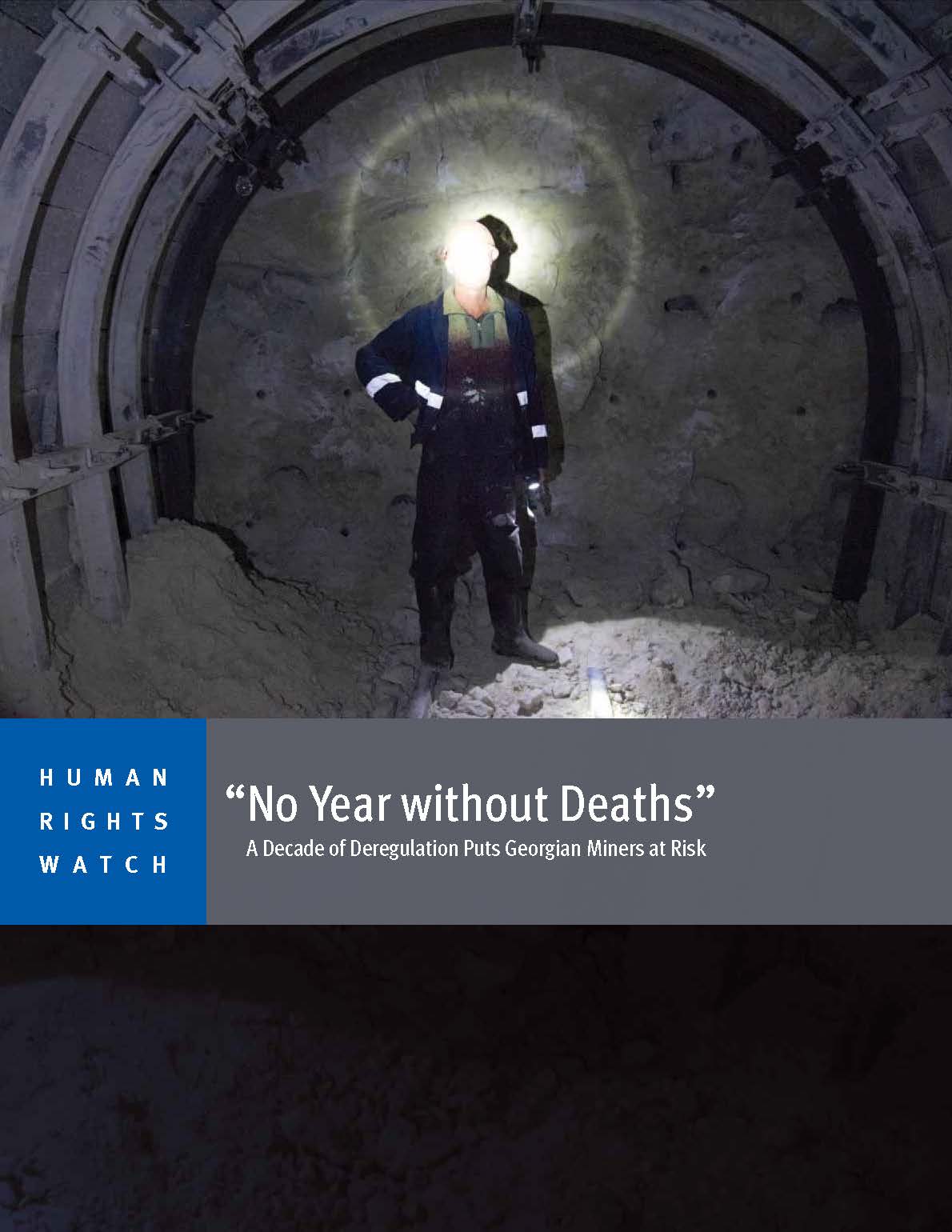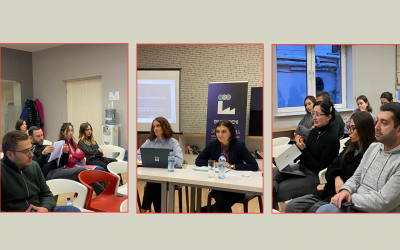Based on interviews with over 80 people, including workers in a coal and a manganese mine in Georgia and their families, trade unions, lawyers, nongovernmental organizations (NGOs), representatives of international organizations, representatives of the Labor Inspectorate and the Labor Ministry, and members of Parliament, this report by Human Rights Watch finds that workers’ safety in mines continues to be at serious risk due to insufficient regulation by the government and resulting mining practices that prioritize production quotas and put workers’ safety in jeopardy.
The report documents that coal and manganese mining practices of imposing quotas, and wage deductions for failure to meet quotas, have the effect of incentivizing workers and supervisors to compromise worker safety. A new system of manganese mining, implemented in 2016, further exacerbates safety concerns. The system introduced 12-hour shifts, including at night, over 15 consecutive days, with no days off or formal breaks during shifts. It currently affects 380 manganese workers and imposes an obligation to reside in employer-provided accommodation where workers are provided with poor quality food of insufficient calorific value and endure restrictions on their freedom of movement.
Available in Georgian and English.
This publication was prepared individually by a member organization of the Fair Labor Platform and does not necessarily reflect the position of the Fair Labor Platform and/or its other members.



